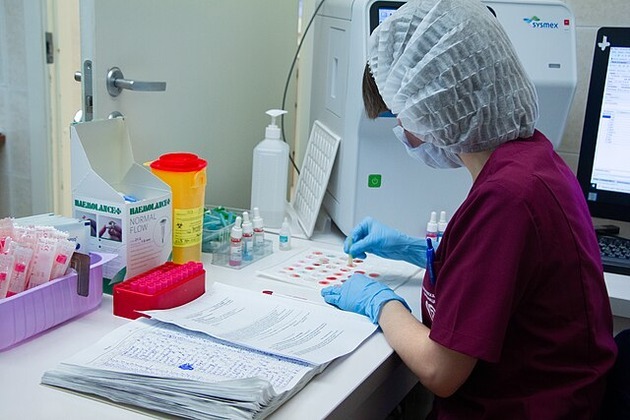Move FM Global News

Blood test-guided therapy halves breast cancer progression risk
Jun 5, 2025CHICAGO, Illinois: A simple blood test could help breast cancer patients get the proper treatment earlier, potentially halving their risk of disease progression or death, new research has found.
In a major trial led by AstraZeneca, researchers used liquid biopsy—a type of blood test—to detect early signs of resistance to standard hormone therapies in women with a common form of advanced breast cancer. Those who switched early to an experimental pill called camizestrant saw their disease progression slow significantly, even before tumors showed up on scans.
The results, presented over the weekend at the American Society of Clinical Oncology (ASCO) meeting in Chicago, could reshape how doctors treat hormone receptor-positive, HER2-negative breast cancer—the most common subtype, where hormones like estrogen fuel tumor growth.
“When patients progress on scans, we’re already behind,” said Dr. Eleonora Teplinsky, an ASCO expert and oncologist at Valley-Mount Sinai. She called the early-switch method “a chance to stay ahead of the curve.”
In the study, 3,256 women had already undergone at least six months of standard therapy with aromatase inhibitors and targeted CDK4/6 inhibitors (such as Pfizer’s Ibrance, Novartis’ Kisqali, and Lilly’s Verzenio). About 40 percent of them developed ESR1 gene mutations—an early sign of drug resistance.
Researchers monitored these patients using blood tests. Once 315 women showed ESR1 mutations, they were split into two groups: one continued standard treatment with a placebo; the other switched to camizestrant alongside the same targeted drug.
The results were striking. Disease progression was delayed to 16 months for the camizestrant group, compared to 9.2 months for those who stayed on standard care. No new safety concerns emerged.
“This is going to be very impactful for our patients,” said Dr. Hope Rugo of City of Hope, California. “The question is how do we incorporate this into everyday practice?”
Camizestrant, a Selective Estrogen Receptor Degrader (SERD), is not yet FDA-approved, but experts believe this data will accelerate its adoption.
In a separate ASCO presentation, AstraZeneca also announced promising results from a trial of its immunotherapy drug durvalumab (Imfinzi) in early-stage stomach and esophageal cancer. Patients treated with durvalumab plus chemotherapy showed a 29 percent improvement in event-free survival compared to chemotherapy alone.
Both studies were published on June 1 in the New England Journal of Medicine.


